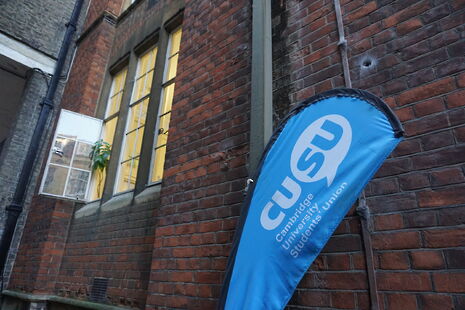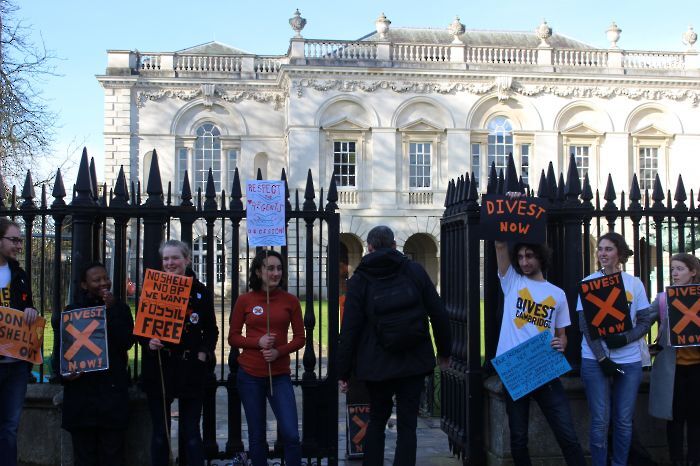Not just tea and condoms: welfare is political
In the first of their four columns on the underdiscussed issues of disability and welfare provision among young people, Micha Frazer-Carroll and Florence Oulds show how there’s more to welfare than the fluffy image often presented

Tea, pet-a-puppy days, and a freshers’ week confettied with condoms and lube sachets galore. These might be a few of the first things that come to mind when students think of welfare in Cambridge. For many, welfare officers and their activities exemplify wholesome, soft-and-cuddly aspects of the college community. But we must not forget that this work, as well as welfare’s emerging scope, is explicitly political.
It’s no secret that mental health is a widespread issue in Cambridge, and activists (which welfare and liberations officers should no doubt be considered) have tirelessly campaigned on issues from class lists to accessibility in colleges. Moreover, despite their apolitical guises, initiatives such as pet-a-puppy days, craft sessions, and chill-out zones engineer spaces of sanctity for students struggling with Cambridge’s high-pressure environment and encourage self-care for self-care’s sake.
But we must also remember that discrimination, and lack of access to support, means some groups are more vulnerable to mental health problems. A recent study by Stonewall found that almost half of trans young people have attempted suicide, whilst black people are more likely to be sectioned under the Mental Health Act. Meanwhile, rates of depression and anxiety diagnoses are higher in women, and suicide rates higher in men, who are theorised along with many people of colour to wait until crisis point to seek help. In this vein, BME, LGBT+, women’s and disabled students’ officers are central to welfare, and the collaboration between officers that now operates in some JCRs and MCRs should be encouraged. Moreover, welfare techniques like ‘active listening’ seem especially relevant to marginalised students, who have demonstrated the radical power of talking and listening through forums like FLY, a network in Cambridge. Thus support for student mental health is explicitly political.
“It's important to interrogate the accessibility of Freshers’ events when approaching first-term socialising from a welfare perspective.”
Sexual health also makes up a crucial part of welfare-related Freshers’ Week conversations, with mass-distribution of condoms via JCRs and MCRs, and talks that emphasise the importance of safe sex. This is crucial in empowering students to take charge of their own sexual activity and identity, as well as being gender-inclusive. But it’s of crucial relevance to interrogate our baseline notions of what ‘safe sex’ actually is. We talk about protection from STIs and unplanned pregnancy, and have, since workshops went compulsory in 2014, begun important discussions on consent.
But many issues still remain nudged to the fringes of commonplace sexual health discourse – as emphasised by the Women’s campaign. We must look to consider how power dynamics influencing consent play out for people of colour navigating a majority-white institution, or for disabled students. The same goes for the fetishisation and/or desexualisation that affects many marginalised people. Moreover, access to sexual health resources is not the same for everyone, in part because what we consider to even constitute sex isn’t the same for everyone. Our conversations should continue to endeavour to question what ‘safety’ is, and how to promote it.
It’s equally important to interrogate the accessibility of Freshers’ events when approaching first-term socialising from a welfare perspective. Pub crawls and club nights are staples of freshers weeks across the country, but such events are often fundamentally inaccessible. For one, bars and clubs are often physically inaccessible and overwhelming spaces to be in, but also many students do not feel comfortable being around alcohol, or with British drinking culture in general. The importance of accessibility cannot be understated regarding social events, especially as disabled students often experience multiple complications in moving to university, as networks of support and routine can be disrupted making it hard to adjust to a new life and stay on top of work.
Accessibility can seem to be a vague idea rather than a legal requirement, but when planning an event, the most important pieces of information to give to students regarding accessibility are the space’s physical accessibility (level access, lifts etc.), what kind of lighting the space has (especially if it’s strobe lighting), and how students can get in touch for more information. We must also be willing to make spaces accessible and to prioritise the needs of disabled students if we wish to make our events, welfare, and activism truly political.
Welfare, in its simplest form, is the politics of who is ‘okay’ and who is ‘not okay’, who is supported, and who isn’t. In this light, the ability to ‘be well’ cannot be disentangled from privilege. We must not overlook that welfare officers serve a pioneering function within the University, and the political scope of welfare is expanding
 News / Fitz students face ‘massive invasion of privacy’ over messy rooms23 April 2024
News / Fitz students face ‘massive invasion of privacy’ over messy rooms23 April 2024 News / Climate activists smash windows of Cambridge Energy Institute22 April 2024
News / Climate activists smash windows of Cambridge Energy Institute22 April 2024 News / Copycat don caught again19 April 2024
News / Copycat don caught again19 April 2024 News / Emmanuel College cuts ties with ‘race-realist’ fellow19 April 2024
News / Emmanuel College cuts ties with ‘race-realist’ fellow19 April 2024 Comment / Does Lucy Cavendish need a billionaire bailout?22 April 2024
Comment / Does Lucy Cavendish need a billionaire bailout?22 April 2024






